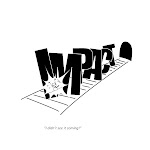The answer is more or less clear: The machines are increasingly in-charge of the most important facets of human society!
In a world of Big Data, number-crunching machines have a "natural" advantage. Automation is slowly, but surely, replacing many sensitive human activities for political, economic and practical reasons. (Read this.)
But in the economy, algorithm-based HFT (high frequency trading) supercomputers literally control the flow of trillions of dollars in the world's largest stock markets, forex markets and commodities exchanges. Essentially, machines control (or distort) the basic "price discovery" mechanism of the markets. Since HFTs make money on price movements, they both cause and profit from market volatility. (See this.)
Speaking of "money"... Less than 10% of the "currency" in circulation is printed physical cash and coins. More than 90% of what we call money (about 97% in places like Sweden) is just digital ones and zeros - created, transacted and tracked by banking software. In a "cashless society", we'll have a 100% machine-generated medium-of-exchange! (See this.)
That's not all... The ruling powers in most nations are using vast digital dragnets to troll for electronic pre-crime evidence. Algorithms that sift through "yottabytes" of data to analyse and identify the potential "bad guys" (and their sympathisers) among us. And it's not easy to hide or escape because your smartphone works for "them"! (See this.)
Most alarmingly, militaries in countries (developed and emerging) around the world are plunging blindly into an era of fully-automated robotic weapons. These can be in the form of autonomous drones using algorithms to track, target - and yes, kill humans - without the oversight of other human beings! (See this.)
Skynet doesn't really need to become "self-aware" and send out the Terminator... A rouge 'algo' could simply delete an economic database - or misinterpret a military one... In the resultant chaos, human beings will probably fight each other to extinction! (Sorry to ruin your day.)
Duking it Out.
-
I'm sure there are about 92 million podcasts, blogposts, webinars,
seminars, ad courses, ad schools, pontificators and powerpoints that
purport to teach ...
19 hours ago





